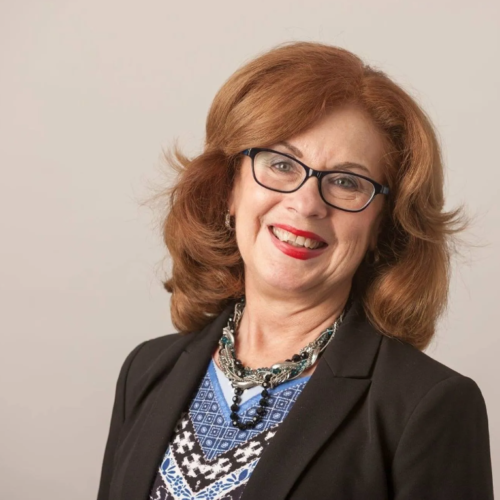
With an eye toward the future, on Friday, May 10th during National Nurses Week, Chestnut Hill College announced Pennsylvania Board of Nursing’s approval for two new nursing programs within its newly created Department of Nursing and Nursing Clinical Arts Center (NCAC). The first is a traditional Bachelor of Science in Nursing (BSN) pre-licensure program, and the second is an accelerated second-degree BSN pre-licensure program, designed for individuals who already have a bachelor’s degree in another discipline and are looking to become registered nurses. Both degrees will prepare students for certification through the National Council Licensure Examination for Registered Nurses (NCLEX-RN).
“A nursing program is part of a long-time vision for Chestnut Hill as the College continues the work of the Sisters of Saint Joseph (SSJ) to serve ‘the Dear Neighbor without distinction,’” says Susan Apold, Ph.D., RN, ANP, BC, FAAN, FAANP, director of nursing at Chestnut Hill College.
In addition to being mission-centric, these nursing programs are anything but cookie-cutter. Joining a list of colleges and universities in the Philadelphia and Pennsylvania-area that offer nursing programs, Chestnut Hill College’s promises to be unique in its implementation, by factoring in current thinking on nursing education in a way that is fresh, new, and beneficial to nursing students and the patients they will one day treat.
According to the student handbook, “The nursing program at Chestnut Hill College recognizes and values the wholistic nature of individuals, families, communities, and our earth who are entrusted to our care. We believe that central to every successful nurse-patient encounter lies an appreciation for the sanctity of human dignity.”
Understanding the value of clinical education and real-world experience, the College’s nursing program will be presented in an immersive format, making it stand out from other such programs. The nursing program utilizes a competency-based model of skill acquisition consistent with the hallmarks of the liberal arts education Chestnut Hill College has been known for over the past nearly 100 years. Unlike a traditional model where students spend most of their time in the classroom, the NCAC will see students spend three to four days a week in classroom instruction during the first six weeks of the semester, followed by consecutive days of patient care in as many clinical areas as possible, for the rest of the term.
To accomplish this, the College has several agreements with local hospitals and healthcare facilities. Included among them is St. Joseph Villa, which allows the College to further support its mission as a sponsored work of the SSJs. The Ambassador’s Fund for Catholic Education has provided a grant in support of this expanded partnership.
Working with the Villa also fulfills a key tenant of the new nursing program, an intentional focus on current and emerging health needs specific to adults as they age. Recent census data notes that the 65-and-older population is growing, underlying the importance of coursework that specifically addresses social, economic, and lifestyle needs of this population. The College’s nursing program aims to educate students on these specific needs and the health and pathology unique to senior citizens.
Also setting Chestnut Hill College’s nursing program apart from its contemporaries is a dedicated and intentional focus on self-care. In partnership with the College’s Counseling Center, programs of meditation, reflection, relaxation, yoga, stress recognition and stress reduction are available to students. The importance of self-care is also built into the program and student learning outcomes, and evaluation measures.

Photo courtesy of Nancy Apold
According to Apold, this approach goes above and beyond traditional nursing programs by recognizing the unprecedented challenges faced by today’s healthcare providers and integrating current research on nursing resilience and coping mechanisms to produce nursing students equipped with the skills not only to handle the demands of the profession, but also to identify and manage stressors while practicing self-care.
“Chestnut Hill College’s curriculum will focus on preparing nurses who are practice ready to prevent illness and manage disease across the lifespan by assuring that our students have immersive clinical experiences, current knowledge to prepare them for an aging population and perhaps most important, the skills and knowledge to care for themselves so as to prevent burnout and compassion fatigue in this demanding career,” notes Apold.
The NCAC embraces the American Association of Colleges of Nursing’s Essentials, which provides the structure for the curriculum. Through this structure, the College’s nursing program will build on liberal education, develop professional and values-based behaviors, expand and hone critical thinking and communication skills, develop technical skills, teach core nursing knowledge, develop an appreciation for and understanding of diversity, equity, and inclusion, and facilitate development of the students’ role as a member of the profession of nursing.
In addition to providing a program that focuses on care and concern for the whole person, nursing at Chestnut Hill College is grounded and aligned in the mission and values of the College and its founders, the SSJs, as well as designed to address professional standards in the industry. These values include commitment to an inclusive community, just relationships, responsible action, innovative thinking, informed professional education, self-discovery and personal growth, dignity of all persons, and more.
As is expressed in the Department of Nursing’s Mission Statement, “Chestnut Hill College nurses will be able to: initiate and adapt to change, engage in critical thinking in healthcare innovation, engage in bold leadership in pursuit of individual, family, community, and environmental and professional advocacy, and seek knowledge wherever it presents itself in pursuit of a global culture of health.”
The timing for such a nursing program, one that values self-care and focuses on mission-centric education, couldn’t be more perfect according to Apold, who has been an experienced nursing leader, clinician, educator, and administrator in the field for over 20 years.
“Given the tremendous change that our society has experienced in health care over the past five years, nursing remains the backbone of the healthcare system,” she says. “Predictions of a worsening shortage, sweeping retirements from the profession, and the aftermath of COVID have made one thing crystal clear: our nation needs nurses now.”
The CHC Nursing Program is pending approval by the Middle States Commission on Higher Education.
– Marilee Gallagher ’14
